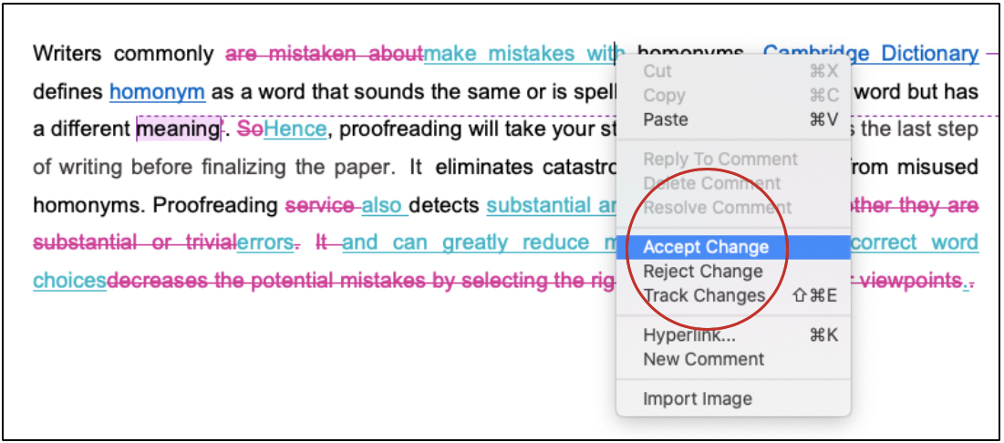Some essays use logical and factual data to sustain their claims. They are known as argumentative essays and form a significant proportion of all essays written by scholars and students during their academic tenure. This article demonstrates how to write an argumentative essay by dividing the writing process into four detailed steps. Hence, readers looking to augment the plausibility of their argumentative texts should ensure to abide by them.

Essays are one of the many essential documents that place themselves under the canopy of academic writing. Shorter than dissertations and research papers, they primarily delineate the arguments of their authors with sufficient supporting evidence. In some essays, this supporting evidence is emotional or opinionated. Academics call them persuasive essays.
Some essays use logical and factual data to sustain their claims. They are known as argumentative essays and form a significant proportion of all essays written by scholars and students during their academic tenure.
This article demonstrates how to write an argumentative essay by dividing the writing process into four detailed steps. Hence, readers looking to augment the plausibility of their argumentative texts should ensure to abide by them.
Argumentative essays are one of the most common types of essays in academia. Yet, many academics find it difficult to set forth their arguments convincingly when writing one.
The steps mentioned below address this impediment by arranging the procedure of essay composition such that writers can equally focus on each aspect of the essay.
A thesis statement is essentially the crux of an essay. It is a sentence that clarifies the argument the author is posing, offering readers a perspective they can discern with ease when reading the document. Therefore, the thesis statement should be well constructed and portray the author's argument(s) firmly, leaving little room for vagueness.
To curate a strong thesis statement, writers should first create a rough draft and set it aside. Then, as the essay takes shape, they should simultaneously polish the statement to coincide it with the essay’s essence.
Like every other academic document, an essay follows a set layout to make it easy for readers to grasp its contents. However, unlike the complex and rigid structures of longer academic documents, the structure of an essay is quite straightforward. Typically, all writers follow the five-paragraph layout unless stated otherwise.
The first paragraph houses the introduction, the following three comprise the expositions, refutal, and corroboration, and the final one summarizes the essay. Apart from this visible essay structure, there exist three more theoretical structures that academics use to develop their arguments.
The Aristotelian style of argument structuring is the most prevalent among all argumentative essays owing to its uncomplicated nature. It places the cogency of an argument on three factors - ethos, pathos, and logos. In other words, writers need to cater to the logical and emotional sides of the readers while maintaining the essay's overall credibility.
The Aristotelian argument suggests that writers need to
present their argument(s)
explain the basis behind them
refute the opposition
offer rational evidence
conclude the essay.
The Toulmin argument model becomes applicable when an argument has no concrete basis or does not refer to any definite truth. Writers need to split their essays into the following six parts:
Claim: Putting forth an argument
Grounds: The rationale behind the argument, including the relevant facts and quotes
Warrant: The line of communication between the claim and the grounds
Backing: ancillary evidence for the claim
Qualifier: the frontiers of an argument that signify its subjectivity
Rebuttal: critiquing opposing stances to the argument
These six elements construct the essay around the analysis of the argument(s), giving the readers a convincing outlook.
Structuring essays using the Rogerian argument style entails the authors arriving at a middle ground between the proposed arguments and the audience's biases.
It first involves the author presenting the claim(s) to the readers and then recognizing the opposing perspective. The author then needs to reacknowledge their stance without outrightly refuting the other side.
Finally, the author should encroach on the neutral/middle ground and initiate a negotiation with the readers.
Like the thesis statement, an essay needs a strong introduction for the audience to read it till the end.
Therefore, when writing the introductory paragraph, writers should ensure that it is catchy, has a hook, and properly accommodates the thesis statement.
Editing and proofreading are two mandatory subsets of the essay writing process. They ensure that an essay is free of grammatical, contextual, tonal, and factual mistakes that can downplay its persuasion. Thus, writers should not undermine the relevance of editing and proofreading and set aside ample time for their execution. Failing to do so can drastically reduce the impact of an essay, undermining all the efforts the writer has put into it.
Like most other essays, argumentative essays serve the purpose of convincing the readers of their stand. However, the method of persuasion in argumentative pieces is more objective owing to the inclusion of logical data. Also, due to the immense research required, argumentative essays demand proper citations to avoid instances of plagiarism.
Therefore, scholars ascertaining how to write an argumentative essay should implement the above steps to ensure their essays are persuasive and in line with the accepted standards.
Best Edit & Proof expert editors and proofreaders focus on offering manuscripts with proper tone, content, and style of academic writing, and also provide an upscale editing and proofreading service for you. If you consider our pieces of advice, you will witness a notable increase in the chance for your research manuscript to be accepted by the publishers. We work together as an academic writing style guide by bestowing subject-area editing and proofreading around several categorized writing styles. With the group of our expert editors, you will always find us all set to help you identify the tone and style that your manuscript needs to get a nod from the publishers.

You can also avail of our assistance if you are looking for editors who can format your manuscript, or just check on the particular styles for the formatting task as per the guidelines provided to you, e.g., APA, MLA, or Chicago/Turabian styles. Best Edit & Proof editors and proofreaders provide all sorts of academic writing help, including editing and proofreading services, using our user-friendly website, and a streamlined ordering process.
Visit our order page if you want our subject-area editors or language experts to work on your manuscript to improve its tone and style and give it a perfect academic tone and style through proper editing and proofreading. The process of submitting a paper is very easy and quick. Click here to find out how it works.
Our pricing is based on the type of service you avail of here, be it editing or proofreading. We charge on the basis of the word count of your manuscript that you submit for editing and proofreading and the turnaround time it takes to get it done. If you want to get an instant price quote for your project, copy and paste your document or enter your word count into our pricing calculator.
Contact us to get support with academic editing and proofreading. We have a 24/7 active live chat mode to offer you direct support along with qualified editors to refine and furbish your manuscript.
Follow us on Twitter, LinkedIn, Facebook, Instagram, and Medium.
For more posts, click here.
This article demonstrates how to write an argumentative essay by dividing the writing process into four detailed steps. To give you an opportunity to practice proofreading, we have left a few spelling, punctuation, or grammatical errors in the text. See if you can spot them! If you spot the errors correctly, you will be entitled to a 10% discount.
How to Determine Variability in a Dataset
14.10.2023
How to Determine Central Tendency
19.02.2023
How to Specify Study Variables in Research Papers?
14.01.2023
Population vs Sample | Sampling Methods for a Dissertation
14.01.2023
How to Ensure the Quality of Academic Writing in a Thesis and Dissertation?
04.12.2022
How to Avoid Anthropomorphism in Your Dissertation?
04.11.2022
How to Write a Research Methodology Section for a Dissertation and Thesis
07.08.2022
How to Write a Theoretical Framework for a Dissertation and Thesis?
05.08.2022
How to Write Literature Review for a Dissertation and Thesis
02.08.2022
How to Write a Dissertation and Thesis Introduction
31.07.2022

A good part of any research depends on the right questions asked. If you are asking wrong questions, your entire research may go off track. Therefore, understanding what questions you need to ask is essential for your research. If you are on the way to your research but don’t know how to start framing the right research questions, we have just the right information for you. This article discusses the process of formulating research questions.
Continue Reading
According to the Office of Research Integrity (ORI), plagiarism is considered “both the theft or misappropriation of intellectual property and the substantial unattributed textual copying of another's work.” Since the consequences of plagiarism can be fatal, this article seeks to discuss 5 practical ways to avoid plagiarism in academic essays.
Continue Reading
Statistical analysis uses quantitative data and explores trends, patterns, and relationships. Thus, it is an indispensable instrument for researchers, states, firms, and many others. This article offers introductory knowledge on statistical analysis for students and researchers. After discussing descriptive and inferential statistics, it covers various research designs.
Continue Reading
The first chapter of your thesis or dissertation includes the introduction. You should provide the reader with a solid start. Next is staging your research with an apparent focus, objective, and direction.
Continue Reading
Research methodology is about the data collection and analysis methods employed in your research. Thus, this section addresses what you performed and how you did it, letting readers assess the reliability and validity of your study and is a critical part of your thesis or dissertation.
Continue Reading